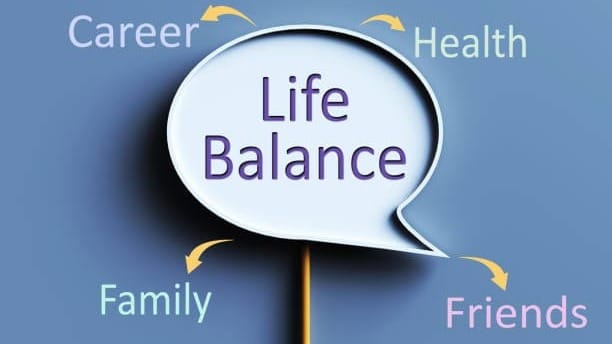Beyond Burnout: The Far-Reaching Consequences of Chronic Stress
From rewiring our brains, weakening our hearts, disrupting our sleep and pushing us towards burnout, the impact of chronic stress can be devastating.

Some stress is positive. It causes our bodies to release adrenaline, which helps us to accomplish assignments and projects and can even enhance our performance and problem-solving ability.
However, chronic stress is more than just feeling frazzled or overwhelmed – it's a serious health concern that can have far-reaching effects on our mental and physical well-being. From rewiring our brains to weakening our hearts, disrupting our sleep and pushing us towards burnout, the impacts of chronic stress are truly devastating
Causes and Triggers of Chronic Stress
Chronic stress often stems from a combination of factors that create a perfect storm in our lives. Some of the most common culprits are: Unrealistic job expectations; Financial concerns; Relationship conflicts and Health problems.
Stress over a long period can wear us down and make us ill unless we take action.

The Stress Response: Your Body on High Alert
When we encounter stress, our body kicks into high gear. Our stress hormones are like the body's emergency responders. They prepare us to either fight the threat or run away from it – that's why it's called the "fight or flight" response. It involves a complex chain of events in our body:
- The brain recognizes a threat or stressor
- It signals the hypothalamus, a tiny region at the base of the brain
- The hypothalamus activates the "HPA axis" – that's short for hypothalamic-pituitary-adrenal axis
- This triggers the release of stress hormones, mainly cortisol and adrenaline
Adrenaline: makes the heart beat faster, causes blood pressure to rise and gives you more energy.
Cortisol: the primary stress hormone, increases sugar, also called glucose, in the bloodstream, enhances the brain's use of glucose and increases the availability of substances in the body that repair tissues.
Cortisol also slows functions that would be non-essential or harmful in a fight-or-flight situation. It changes immune system responses and suppresses the digestive and reproductive systems and growth processes. This complex natural alarm system also communicates with the brain regions that control mood, motivation and fear.
The problem is that our bodies aren't designed to be in this high-alert state for long When stress becomes chronic, it's like leaving the alarm blaring 24/7, and that's when things start to go wrong.

When the Stress Response Goes Wild
The body's stress response system is usually self-limiting. Once a perceived threat has passed, hormones return to normal levels. As adrenaline and cortisol levels drop, your heart rate and blood pressure also return to normal", and other systems return to their regular activities.
But when stressors are always present and you always feel under attack, that fight-or-flight reaction stays turned on.
The long-term activation of the stress response system and too much exposure to cortisol and other stress hormones can disrupt almost all the body's processes. This puts you at higher risk of many health problems.
The Insidious Effects of Chronic Stress on Mental Health
One of the first places we see the impact of chronic stress is in our mental health. These effects can be profound:
- Anxiety: Constant worry, feeling on edge, panic attacks
- Depression: Persistent unhappiness, loss of interest in activities, feelings of hopelessness
- Irritability: Short temper, easily frustrated
- Difficulty concentrating: Trouble focusing, forgetfulness
But it's not just about how we feel.
Chronic Stress and Physical Health: A Body Under Siege
While the mental health impacts of chronic stress are significant, the physical effects can be just as devastating. Stress doesn't just affect our minds – it puts our entire body under siege. Let's break down some of the ways chronic stress can harm our physical health:
- Cardiovascular System • High blood pressure • Increased heart rate • Inflammation in blood vessels • Higher risk of heart attacks and strokes
- Digestive System • Stomach pain and nausea • Diarrhoea or constipation • Increased risk of ulcers • Worsening of conditions like Irritable Bowel Syndrome
- Musculoskeletal System • Muscle tension, especially in neck and shoulders • Chronic headaches • Back and neck pain • Increased risk of injuries
- Immune System • Weakened defenses against infections • Slower healing of wounds • Increased inflammation throughout the body
- Endocrine System • Hormonal imbalances • Disrupted menstrual cycles in women • Sexual dysfunction • Thyroid problems
It's a long list, and it can be serious. These are just some ways chronic stress can affect our bodies. The truth is, that almost every system in our body can be impacted by long-term stress.

The Vicious Cycle of Stress and Sleep Deprivation
One of the most insidious effects of chronic stress is how it messes with our sleep. And poor sleep, in turn, makes us even more stressed. It's a vicious cycle that can be hard to break.
Stress and Sleep Deprivation Feed each other:
- Stress makes it hard to fall asleep or stay asleep
- Lack of sleep leaves us tired and irritable the next day
- Being tired makes it harder to cope with stress and heightens reactivity
- More stress leads to another night of poor sleep and impaired decision-making
- And the cycle continues...
The consequences of this cycle go beyond just feeling tired. Sleep deprivation can lead to:
- Weakened immune function
- Increased risk of obesity and diabetes
- Impaired cognitive function, poor memory and dementia
- Mood disorders like depression and anxiety
Many professionals find that helping clients improve their sleep is a crucial first step in managing their stress levels.
Chronic Stress and the Consequences of Burnout
If chronic stress is left unchecked, it can lead to a state of complete emotional, mental, and physical exhaustion. We call this burnout, and it's a serious condition that can have long-lasting effects on health and well-being.
Breaking the Cycle: Strategies for Managing Chronic Stress
After painting a pretty grim picture of chronic stress, you might be feeling, well, stressed! But don't worry – while chronic stress is serious, it's not unbeatable. There are many effective strategies for managing stress and protecting your health. Here are some that I often recommend to my clients:
- Practice mindfulness and meditation: These techniques can help calm your mind and reduce the body's stress response. Even just 10 minutes a day can make a difference.
- Exercise regularly: Physical activity is a great stress-buster. It releases endorphins, improves mood, and helps you sleep better.
- Prioritize sleep: Aim for 7-9 hours of quality sleep each night. Establish a relaxing bedtime routine and stick to a consistent sleep schedule.
- Eat a healthy diet: Nutrition plays a big role in stress management. Focus on whole foods, fruits, vegetables, and lean proteins, and remove all ultra-processed foods from your diet. Limit caffeine and alcohol, which can worsen stress and sleep problems.
- Connect with others: Strong social connections can provide emotional support and help buffer against stress. Don't be afraid to seek help from friends and family if you feel overwhelmed.
- Learn to say no: Setting boundaries and not overcommitting yourself can help prevent stress from building up.
- Practice time management: Organizing your tasks and managing your time effectively can help reduce feeling overwhelmed.
- Seek professional help: Consult your doctor, a therapist or counsellor.
Take Chronic Stress Seriously
By understanding the causes and effects of chronic stress, we can take steps to manage it effectively. Remember, stress management isn't a luxury – it's a necessity for good health.
Your health and well-being are worth the effort. Don't let chronic stress steal your joy and vitality. Take action, seek support if needed, and remember – you have the power to manage your stress and protect your health.
Here's to less stress and more wellness in your life!






